

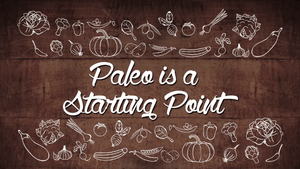
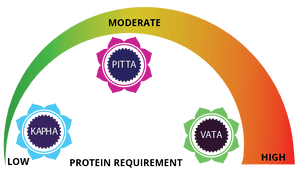
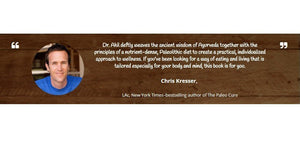
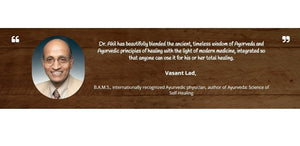
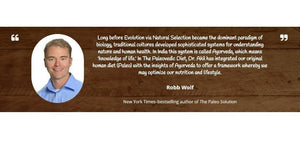
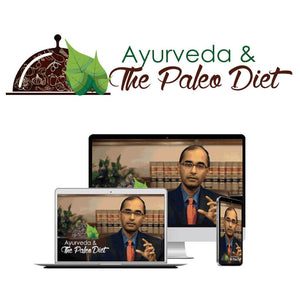
A one of a kind course revealing a unique diet plan combining the principles of Ayurveda and the Paleo Diet!
It’s a tacit cross-fertilization of the most potent aspects of the Paleo Diet, personalized with a dose of Ayurveda.
It’s not simply a diet. It’s a complete lifestyle guide which utilizes delicious nourishing foods, powerful healing spices and intensive detox techniques that will metamorphose you into the person you always wished to be.
In this course, Dr. Akil will tell you how to bring together these 2 subjects to take your health to the next level and really deepen your understanding of optimal diet and lifestyle. In fact, he believes in this approach so much that he came up with the term “paleovedic”, combining the words 'paleo' and ‘vedic’ from ‘Ayurveda’.
The course contains much of interest to a broad spectrum of people, ranging from Paleo aficionados to serious biohackers to innocent newbies - indeed to anyone who is really serious about optimizing his or her health. This course can help you to lose weight, boost your energy and vitality, and begin to reverse any health challenges you might be facing.
What this course does is exactly the opposite - it busts fad concepts that come and go, not necesarily benefitting you and often even harming you with their focus on short term results. Instead, Ayurveda and the Paleo Diet shows you the most sustainable, long-term solution to a healthy life, which not only does not harm you but also gives you effective results that you can easily maintain.
Dr. Akil does the heavy lifting for you by reviewing and summarizing scientific literature from both modern medical science as well as Ayurveda. Dr. Akil is one of the rare few, uniquely qualified Medical Practitioners who can give you accurate and reliable health information, based on his diverse and top-notch education, extensive experience treating thousands of complex patients and his own healing experience through a journey of diet-related illness.
Not just this, also download your
COMPLIMENTARY Course Completion Certificate
After you complete watching the course, your Complimentary Course Completion Certificate awaits you. This can be easily downloaded and shared or printed.
60-day money back guarantee

Dr. Akil Palanisamy, a Harvard-trained physician practicing integrative medicine, combines Ayurveda and Western medicine in his clinical practice with patients in San Francisco.
After completing his undergraduate degree in biochemistry at Harvard, he performed clinical research at Harvard Medical School where he wrote his senior thesis. This was followed by medical school at the University of California, San Francisco, residency training at Stanford University, and fellowship in integrative medicine with Dr. Andrew Weil at the University of Arizona.
But that’s not it - what makes Dr. Akil unique is his in-depth study of the ancient Indian Science of Ayurveda which helps him take a holistic approach with his patients and show exceptional results of recovery and healing.
He studied Ayurveda in India at the Arya Vaidya Chikitsalayam in Coimbatore and completed clinical training with his guru Dr. L. Mahadevan in Derisanamcope, Tamil Nadu at the Sri Sarada Ayurvedic hospital.
As a Harvard trained MD, Dr. Akil integrates a strong scientific background in biochemistry and Western Medicine with training in Ayurveda and study of ancestral societies around the globe. This unique background enables him to seamlessly blend Ayurvedic principles with the latest research in nutrition, food science, and medicine. Dr. Akil is known to provide definitive, practical health information based on cutting-edge research and clinical experience.